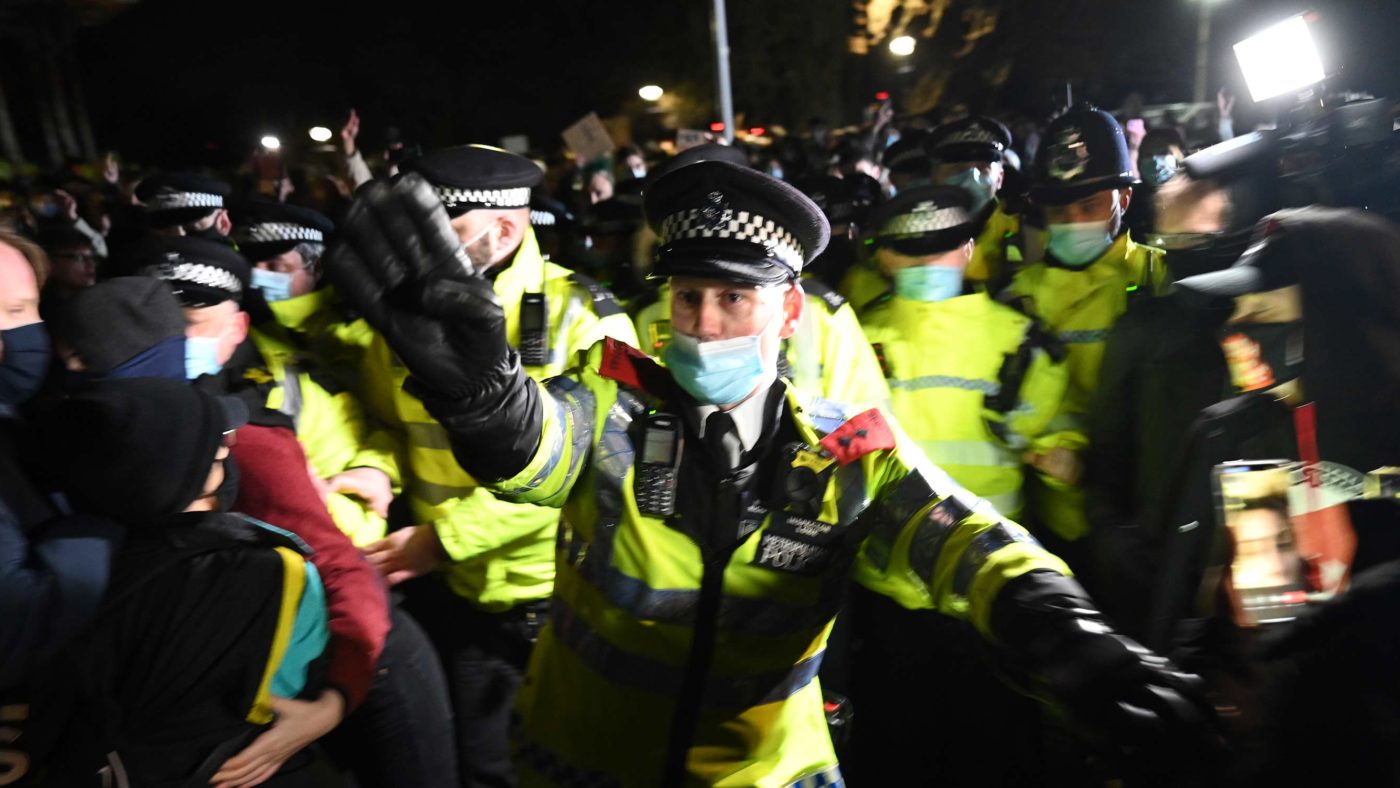As public relations disasters go, it’s hard to top. Police officers bundling into a group of women who had come together in sorrow and disgust at the murder of another young woman, turning what should have been a sombre moment of reflection and tribute into one of anger, frustration and fear. Even the most fervent supporter of lockdown rules would struggle to make a strong case for the way the vigil on Clapham Common was handled.
But however misjudged the Metropolitan Police’s approach was, you’d be hard-pressed to call last night’s events ‘shocking’. The scene was typical of a year where the law has often seemed untethered from common sense or proportion. From harassing walkers, to querying easter egg purchases, to standing impassively at one set of protests while vigorously policing another, the police have managed to be punctilious and inconsistent in equal measure.
And what was the point of first forbidding and then breaking up yesterday’s gathering? The extremely tin-eared Met statement last night claiming there was an “overriding need to protect people’s safety” simply doesn’t pass muster.
For one thing, vigils in other cities passed off entirely without incident, so it’s not as though the Met’s approach was the only one available. Just as importantly, the underlying rationale for stopping the gathering is very weak. We’ve known for a pretty long time that outdoor events pose a low risk compared to gathering indoors. Indeed, we tested that proposition to destruction last year, when there were dozens of Black Lives Matter protests and no spike in cases whatsoever in the ensuing weeks, either in the US or here.
This detailed analysis of the effects of protests on both cases and deaths found “no evidence” of protests leading to a spike in cases. And just this week Patrick Vallance and Chris Witty, the high priests of our Covid regulations, have also played down the risks of outdoor gatherings.
Of course, we can’t expect Parliament to convene every time a new bit of evidence suggests doing things differently, but in a world of finite resources, that’s what the ‘operational independence’ of police is there for – to make a judgement about how and where to direct resources. When Sadiq Khan says police “have a responsibility to enforce Covid laws”, he misses that crucial point.
The police themselves have been placed in an invidious position too by laws that are confusing and poorly drafted. Don’t take my word for it. John Apter, the chairman of the Police Federation, said recently that “every time the legislation changes, officers need to interpret with no time at all. Nine out of 10 officers felt that regulations were not clear”. Note too the recent review that found all 246 prosecutions under the Coronavirus Act had been brought in error.
Even if you are persuaded that the vigil on Clapham Common posted a material risk to public health, does it count for more than the enormous reputational damage this will do to the Metropolitan Police, not least in the eyes of the women so shaken by Sarah Everard’s murder?
The upshot of all this is simple enough: that we’re in the midst of an intense argument about policing protests when we should be focused on why so many women are so scared to walk the streets and how to protect them.
Click here to subscribe to our daily briefing – the best pieces from CapX and across the web.
CapX depends on the generosity of its readers. If you value what we do, please consider making a donation.


